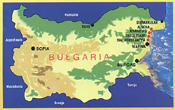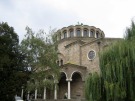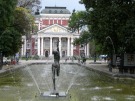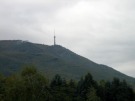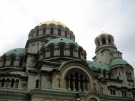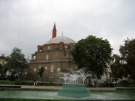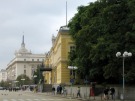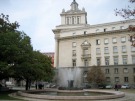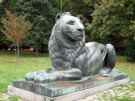Sofia
THE REGION
 SOFIA – (Bulgarian: София Sofija), is the capital and largest city of the Republic of Bulgaria, with a population of 1,270,010 (making it the 14th largest city in the European Union), and some 1,386,702 in the metropolitan area, the Capital Municipality. It is located in western Bulgaria, at the foot of the mountain massif Vitosha, and is the administrative, cultural, economic, and educational centre of the country.
SOFIA – (Bulgarian: София Sofija), is the capital and largest city of the Republic of Bulgaria, with a population of 1,270,010 (making it the 14th largest city in the European Union), and some 1,386,702 in the metropolitan area, the Capital Municipality. It is located in western Bulgaria, at the foot of the mountain massif Vitosha, and is the administrative, cultural, economic, and educational centre of the country.One of the oldest capital cities in Europe, the history of Sofia dates back to the 8th century BC, when Thracians established a settlement there. Sofia has had several names in the different periods of its existence, and remnants of the city's millenary history can still be seen today alongside modern landmarks.
Sofia's development as a significant settlement owes much to its central position in the Balkans. It is situated in western Bulgaria, at the northern foot of the Vitosha mountain, in the Sofia Valley that is surrounded by mountains on all sides. The valley is the largest one in the country with territory of 1,186 square kilometres (457.9 sq mi) and average altitude of 550 metres (1,804 ft). Three mountain passes lead to the city, which have been key roads since antiquity, connecting the Adriatic Sea and Central Europe with the Black and Aegean Seas.
A number of low rivers cross the city, including the Vladaiska and the Perlovska. The Iskar River in its upper course flows near eastern Sofia. The city is known for its numerous mineral and thermal springs. Artificial and dam lakes were built in the last century.
It is located 150 km (90 miles) northwest of Plovdiv, Bulgaria's second largest city, 390 km west of Burgas, 472 km (294 miles) west of Varna, Bulgaria's major port-cities on the Bulgarian Black Sea Coast. The city is situted at less than 200 kilometres (124 mi) from the borders with three countries: 55 kilometres (34 mi) from Kalotina on the Serbian border, 113 kilometres (70 mi) from Gyueshevo on the frontier with the Republic of Macedonia and 183 kilometres (114 mi) from the Greek border at Kulata.
Sofia is the major centre of Bulgaria's economic life. The manufacturing sector of the economy, represented by over 800 large manufacturing plants, includes metal products (75% of the total output in the country), textiles, rubber and leather goods, printing (50% of output) and electronics (15% of output). Sofia is also the country's financial hub, home to the Bulgarian National Bank, the Bulgarian Stock Exchange, as well as some of the country's largest commercial banks (such as HVB Bank Biochim, Bulbank, DSK Bank and United Bulgarian Bank). Construction, trade and transport are other important sectors of the local economy. Increasingly, Sofia is attracting attention as an outsourcing location for Western European and American multinationals. Sofia is also the headquarters for major Bulgarian and international companies operating in Bulgaria and Eastern Europe.
With the fall of the Communist government in Bulgaria in 1989, major international companies previously not present on the Bulgarian market moved in, the majority of them to Sofia. One such company is SAP AG. SAP Labs located in Sofia is one of the core Development organizations of SAP in Eastern Europe. The real estate market in Sofia has skyrocketed in recent years; for the past year or so with about 100% in just one year (2005–2006). The construction industry has exploded with new construction sites popping up everywhere. Unemployment is rather low at about 2.5% compared to the Bulgarian average of 7.25% but also to European levels where it is at about 7.3%.





